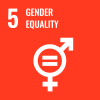Valencia, 9 October 2023 – “When I used to look in the mirror, I hated what I saw,” says 58-year-old Amparo. Originally from Colombia, she now lives in Valencia, Spain, with her daughter, son-in-law and three grandchildren.
“When I saw myself, all those difficult memories from my childhood would flood back in. It threw me into this bottomless well of depression. You feel that nothing and no one can save you; that there is nothing left for you.”
Eight months ago, she was waiting outside the Por ti Mujer (For You, Woman) association when a friend suggested she go inside and ask for Dr. Silvia.
“That day, my life completely changed,” says Amparo.
Years ago, entangled in a 12-year relationship and with a six-year-old daughter, she made the tough choice to break free.
“Those were fragile years when I felt incredibly vulnerable,” she recalls. “I had to either stay with him, slowly withering away by his side, or fight for my life and my daughter’s.”
By then, Amparo had already sought help, but she was met with rejection and ridicule. Bearing the scars of her trust in the person she loved, she eventually mustered the courage to report the abuse.
“They blamed me for my actions,” she says. “They said I must have done something to provoke him.”

“At Entretejidas, it was the first time in my life that I received mental health support and it made me feel profoundly different,” Amparo says. Photo: IOM/Jesús Diaz
With the resilience that has come to define her, Amparo continued raising her daughter as a single mom. She took on various jobs, working as a waitress and a cook, seizing every opportunity that came her way. Those efforts eventually led her to migrate to Venezuela, where other members of her family were waiting.
Nine years of happiness and prosperity followed as they established a small livestock business and a restaurant, until the country’s socio-economic context deteriorated.
“We hit a rough patch and lost everything. My son-in-law was kidnapped for ransom, and we had to sell everything.”
Amparo found herself forced to return to Colombia where life proved no easier.
“In my country, after 40, opportunities for work become scarce, especially for women. We feel discarded,” she said.
Although she finally managed to find employment caring for the elderly in a nursing home, work started dwindling and she soon found herself unemployed again.


At the Por ti mujer centre, women from diverse backgrounds come together for activities like workshops, discussions and support sessions. Photo: IOM/Jesús Diaz
This was not the only setback: her daughter and grandchildren were moving to Spain.
“I was plunged into profound sorrow and loneliness because they were all leaving me behind. We had never been apart until then,” she recalls.
Without a job, she decided to move back to her parents’ home, living together with other relatives. Amparo soon became a round-the-clock caretaker.
“I couldn’t even go for a walk in the park, they reproached me for it – I had to be at their complete disposal. Every single responsibility rested on my shoulders,” she says.
Despite her tenacity, Amparo felt trapped: “I started feeling exhausted and depressed; I felt that I wasn’t valued. I felt alone among people. My world was getting smaller each day and I started feeling incredibly unwell.”

“Here, we dance, we laugh and have picnics; we are all united and have a space just for us,” Amparo says. Photo/Por ti mujer
Her daughter in Valencia, Spain, more than 8,400 kilometers away, threw Amparo a lifeline, extending an invitation to join her there.
“I was so desperate that I had no choice but to leave,” she recalls, a decision rejected by some family members who stopped talking to her. Just a week after her arrival in Spain, her mother passed away which only aggravated the guilt related to her decision to migrate.
Amidst the disappointments she faced upon her arrival in Spain – including racial discrimination – and the overwhelming depression that continued to weigh heavily on her, Amparo wasn’t ready to let anyone in. However, a few days after her arrival, she decided to take a friend’s advice and seek help.
Following a preliminary assessment, the team of professionals at the Por ti mujer association extended an invitation for Amparo to join the Entretejidas (Interwoven) project. This initiative, supported by the International Organization for Migration (IOM) in Spain, provides a safe haven for women like Amparo who need mental health and psychosocial support. Since the project’s launch this year, nearly 40 women were able to participate in psychosocial workshops and 35 received tailored mental health support.
“I soon started feeling heard and valued,” she says. “I don’t know where I would be today if it hadn’t been for this support group.”

“Those workshops and heart-to-heart conversations with women like Silvia have transformed me," Amparo says. Photo: IOM/Jesús Diaz
“Amparo is still Amparo, but she is an Amparo that walks with freedom, confidence and without fear,” she explains. “Even today, I get emotional when I recall the difficult moments I’ve been through, but then I remember that I've already overcome so much. I no longer fear the mirror, nor my past.”
Amparo knows that there is still a long road ahead in her new journey in Spain. She’s already conquered her first obstacle and found a job as a caretaker.
“On my first day, the lady I was supposed to care for said she that she didn’t want a Black woman looking after her,” Amparo recounts, suppressing laughter.
“Another Amparo might have cried, but thanks to the support I’ve received, it only made me laugh.”
This story was written by Jesús Diaz, Project and Communications Officer with IOM Spain.
IOM’s support for the ‘Entretejidas’ migrant association is possible thanks to the support of the Ministry of Social Inclusion, Social Security and Migration of Spain.



